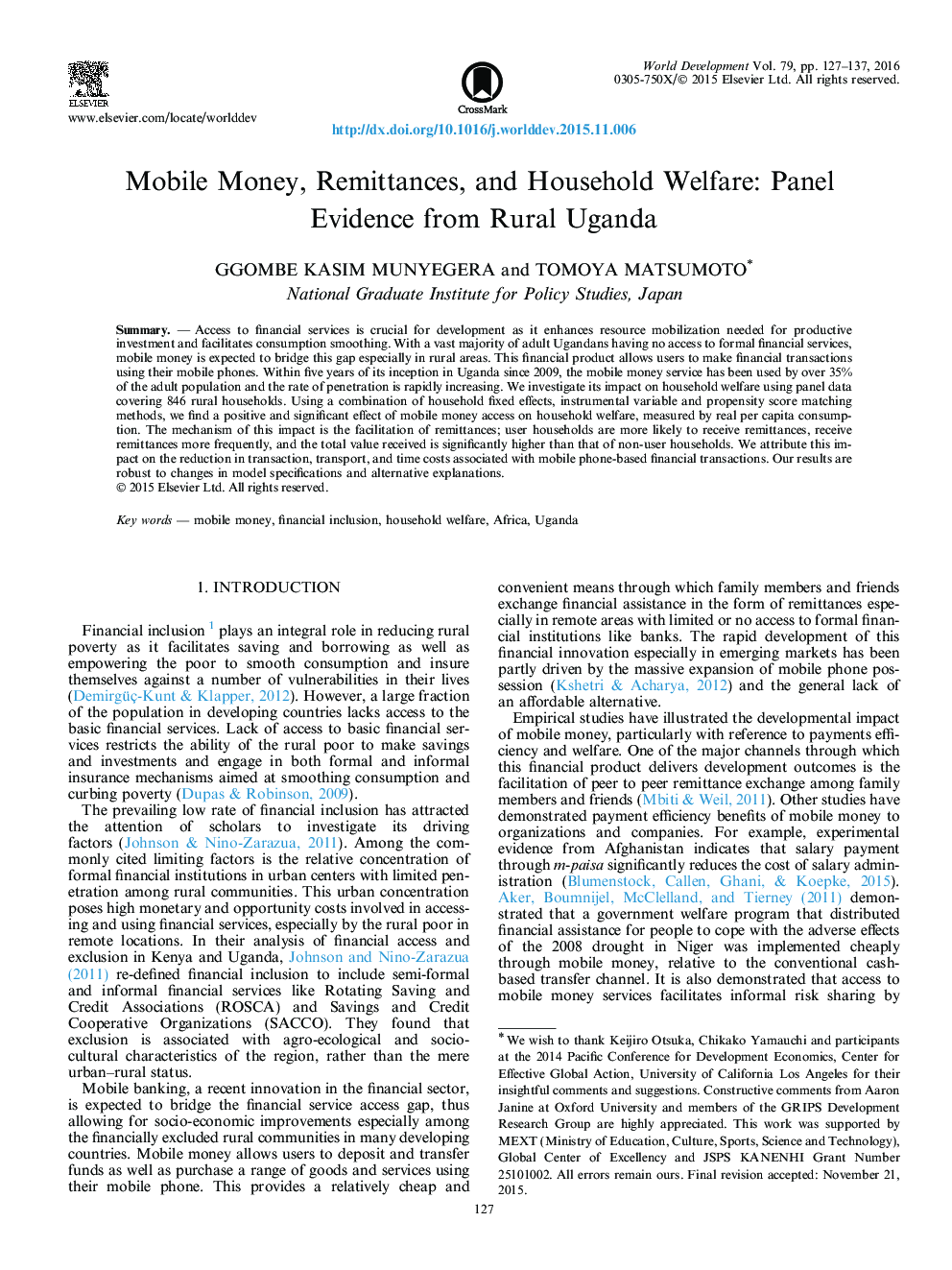| Article ID | Journal | Published Year | Pages | File Type |
|---|---|---|---|---|
| 7392922 | World Development | 2016 | 11 Pages |
Abstract
Access to financial services is crucial for development as it enhances resource mobilization needed for productive investment and facilitates consumption smoothing. With a vast majority of adult Ugandans having no access to formal financial services, mobile money is expected to bridge this gap especially in rural areas. This financial product allows users to make financial transactions using their mobile phones. Within five years of its inception in Uganda since 2009, the mobile money service has been used by over 35% of the adult population and the rate of penetration is rapidly increasing. We investigate its impact on household welfare using panel data covering 846 rural households. Using a combination of household fixed effects, instrumental variable and propensity score matching methods, we find a positive and significant effect of mobile money access on household welfare, measured by real per capita consumption. The mechanism of this impact is the facilitation of remittances; user households are more likely to receive remittances, receive remittances more frequently, and the total value received is significantly higher than that of non-user households. We attribute this impact on the reduction in transaction, transport, and time costs associated with mobile phone-based financial transactions. Our results are robust to changes in model specifications and alternative explanations.
Related Topics
Social Sciences and Humanities
Economics, Econometrics and Finance
Economics and Econometrics
Authors
Ggombe Kasim Munyegera, Tomoya Matsumoto,
